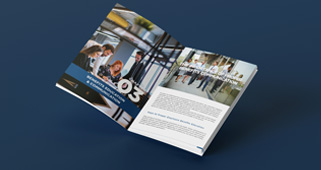Navigating Compliance: Best Practices for Employees in Today’s Workplace
In the ever-evolving landscape of regulations and legal requirements, compliance has become a cornerstone of modern workplaces. Ensuring adherence to laws, regulations, and company policies is not only essential for mitigating risks but also for fostering a culture of integrity, trust, and accountability within organizations. In this comprehensive guide, we’ll explore compliance best practices for employees, equipping them with the knowledge and tools needed to navigate the complexities of compliance in today’s workplace effectively.
Understanding Compliance
Compliance refers to the act of following rules, regulations, and standards set forth by governing bodies, industry associations, and internal policies. These regulations span a wide range of areas, including labor laws, data privacy, workplace safety, and financial regulations. Compliance is not only a legal obligation but also a fundamental aspect of ethical business conduct and corporate governance.
Compliance Best Practices for Employees
1. Stay Informed
- Know the Regulations: Familiarize yourself with relevant laws and regulations applicable to your role and industry. Stay updated on changes and developments to ensure ongoing compliance.
- Read Company Policies: Review and understand your organization’s policies and procedures, including employee handbooks, codes of conduct, and compliance manuals.
2. Seek Clarification
- Ask Questions: If you’re unsure about a policy or procedure, don’t hesitate to seek clarification from your supervisor, HR department, or legal counsel. It’s better to ask questions than to make assumptions that could lead to non-compliance.
- Raise Concerns: If you observe behavior or practices that may violate laws or company policies, report them through the appropriate channels, such as a whistleblower hotline or HR department.
3. Maintain Confidentiality
- Protect Sensitive Information: Safeguard confidential and proprietary information, including customer data, trade secrets, and company financials, from unauthorized access or disclosure.
- Follow Data Privacy Laws: Adhere to data privacy regulations such as the General Data Protection Regulation (GDPR) and the Health Insurance Portability and Accountability Act (HIPAA), ensuring the secure handling and storage of personal and sensitive data.
4. Practice Ethical Behavior
- Act with Integrity: Conduct yourself with honesty, fairness, and transparency in all business dealings, both internally and externally.
- Avoid Conflicts of Interest: Disclose any potential conflicts of interest, such as financial interests, personal relationships, or outside activities, that may influence your decision-making or impartiality.
5. Uphold Workplace Safety
- Follow Safety Protocols: Adhere to workplace safety guidelines and procedures to prevent accidents, injuries, and hazards. Report any safety concerns or incidents promptly.
- Use Protective Equipment: Wear appropriate personal protective equipment (PPE) and adhere to safety protocols when working in hazardous environments or performing high-risk tasks.
6. Respect Diversity and Inclusion
- Promote Diversity: Embrace diversity and inclusion in the workplace, treating all colleagues and stakeholders with respect, dignity, and fairness.
- Avoid Discrimination: Refrain from discriminatory behavior or language based on factors such as race, gender, age, religion, disability, or sexual orientation.
7. Be Transparent
- Provide Accurate Information: Ensure that all communications, reports, and disclosures are truthful, accurate, and complete, avoiding misleading or deceptive practices.
- Document Actions: Maintain detailed records of business activities, transactions, and decisions to demonstrate compliance with laws and regulations.
8. Stay Educated
- Participate in Training: Attend training sessions, workshops, and seminars on compliance-related topics to enhance your knowledge and skills.
- Stay Engaged: Keep abreast of industry trends, best practices, and emerging regulations through professional associations, online resources, and industry publications.
Compliance is not just a checkbox or a legal obligation—it’s a fundamental aspect of ethical business conduct and organizational integrity. By following these best practices, employees can contribute to a culture of compliance that fosters trust, accountability, and success within the organization.
For businesses seeking to enhance their compliance efforts and ensure adherence to regulatory requirements, a broker like Benely.com offer comprehensive services and resources to streamline compliance management. From policy development and training to compliance audits and reporting, Benely provides tailored solutions to help organizations navigate the complexities of compliance effectively and efficiently.
In today’s dynamic and regulated business environment, compliance is everyone’s responsibility. By embodying these best practices, employees can play a crucial role in upholding the integrity and reputation of their organizations while fostering a culture of compliance that promotes trust, transparency, and ethical behavior.






